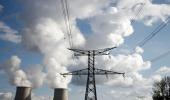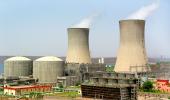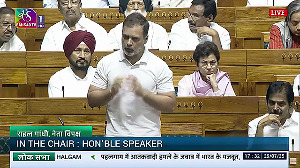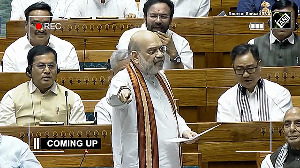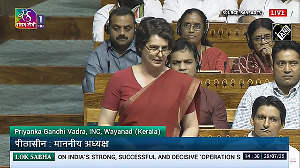Union Finance Minister Nirmala Sitharaman on Tuesday proposed roping in the private sector to boost the share of nuclear power in India's energy basket, as it aims to achieve net zero carbon emissions by 2070.

Presenting the Union Budget, Sitharaman announced that the government will partner with the private sector to set up Bharat Small Reactors and in the research and development of small modular reactors.
Sitharaman said the government will also partner with the private sector for research and development of newer technologies for nuclear energy.
She said the Rs 1 trillion research and development funding, announced in the interim budget in February, will be made available for the nuclear sector.
"Nuclear energy is expected to form a very significant part of the energy mix for a Viksit Bharat," the finance minister said.
In the interim budget presented on February 1, Sitharaman had announced a Rs 1 trillion corpus, with the provision of a 50-year interest-free loan, to help finance research in technology.
"The corpus will provide long-term financing or refinancing with long tenors and low or nil interest rates. This will encourage the private sector to scale up research and innovation significantly in sunrise domains," Sitharaman had said in February.
Last month, Science and Technology Minister Jitendra Singh had said that the Department of Atomic Energy was "suitably designing" the 220 megawatts pressurised heavy water reactor as a Bharat Small Reactor for captive nuclear power generation.
Singh said that the DAE was also working on a Bharat Small Modular Reactor of 220 MW to use light water-based reactors by replacing Calandria with pressure vessel.
Small modular reactors can be factory-built, unlike conventional nuclear reactors that are built on-site. They have a power capacity of up to 300 MW per unit. Being a mobile and agile technology, SMRs can be set up at locations unsuitable for larger plants.
SMRs are seen to be making a significant and meaningful contribution to the energy transition phase as part of efforts to deal with the effects of climate change.
The push for nuclear power, which is considered to be a cleaner fuel or non-fossil fuel, comes in the backdrop of India's ambitious net zero goals.
India has installed nuclear power capacity of 7,480 MW, which is expected to increase to 22,480 MW by 2031.


